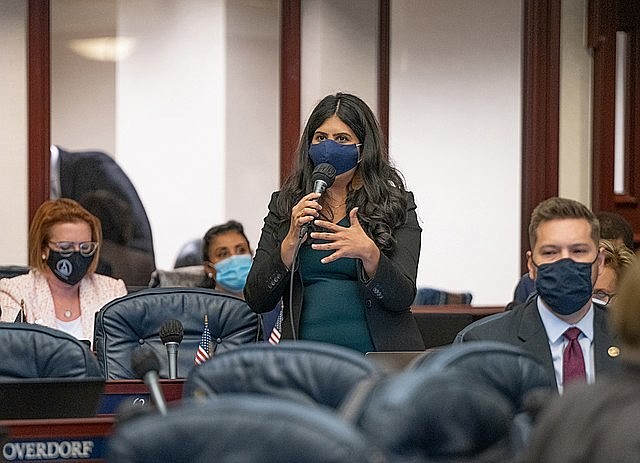- January 2, 2025
-
-
Loading

Loading

Amid a booming real-estate market in many areas, state lawmakers are moving forward with proposals that would place additional restrictions on impact fees that cities, counties and school boards say are needed to help keep up with growth.
House and Senate committees Wednesday approved bills that include putting limits on impact-fee increases and defining the types of infrastructure projects that can be funded with impact-fee money.
The bills (HB 337 and SB 750) came after the approval or consideration of large impact-fee increases in areas such as Hillsborough County, according to House sponsor Nick DiCeglie, R-Indian Rocks Beach. With impact fees collected on new construction, supporters of the bills say increases are baked into the prices of new homes.
“We always have to be cognizant that these costs are passed on to consumers,” Florida Home Builders Association lobbyist Dane Bennett told the House Ways & Means Committee, which approved DiCeglie’s bill in a 15-2 vote.
But critics of the proposals said local governments went years without increasing impact fees after a real-estate bubble burst in 2007 and 2008. Rep. Anna Eskamani, D-Orlando, pointed to what she described as “huge growth” in western Orange County and said schools have not been able to keep up with construction.
“I can totally understand the surprise of seeing these increases, but, again, the housing market is doing very well, so you really can’t blame local governments for making up for lost time and trying to afford the growing infrastructure costs that happen because of the growth in our communities,” Eskamani said.
Senate sponsor Joe Gruters, a Sarasota Republican whose bill was approved by the Senate Finance and Tax Committee, said the measure “all comes down to predictability and trying to plan in an organized way.”
The proposals, in part, would seek to prevent impact fees from being increased more often than every four years and cap such increases at 50 percent. They also would require the increases to be phased in --- what Gruters described as a maximum increase of 12.5 percent a year for four years.
The bills also include an exception to the limits if local governments can meet certain legal requirements, including what is known as a “rational nexus test.” That test effectively requires showing a connection between fee increases, the need for additional infrastructure and the impact of the new construction, according to House and Senate staff analyses.
Jane West, a lobbyist for the growth-management group 1000 Friends of Florida, criticized the proposed limits, saying an “impact fee is a user fee.”
Impact fees are used in a variety of ways, including for road, school and park projects. But the bills would try to define in law what types of infrastructure could be funded with the fees.
“Impact fees are not intended to be a slush fund,” Kari Hebrank, a lobbyist for the Florida Home Builders Association and the National Utility Contractors Association of Florida, told the House committee.
But Eskamani, one of two lawmakers who voted against the House bill, raised questions about whether schools would be able to spend the money on such needs as computer equipment and furniture.
“I hear brick and mortar, I hear brick and mortar, but as we all know, our schools are much more than brick and mortar,” she said.